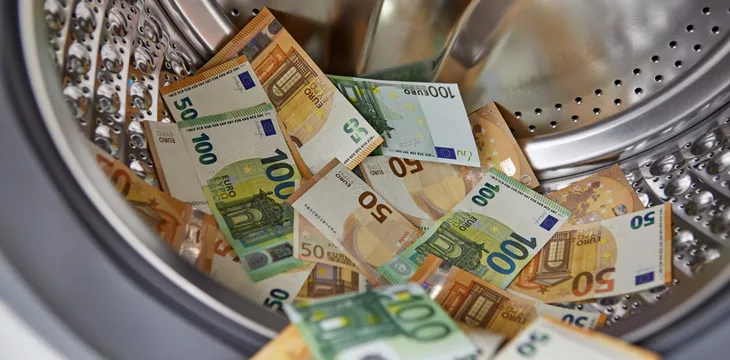|
Getting your Trinity Audio player ready...
|
The European Parliament has voted to adopt a package of AML laws that will enhance “due diligence measures and checks on customers’ identity.”
The bill is not part of the EU’s landmark Markets in Crypto Asset (MiCA) regulation—which was passed last June and brings a host of bespoke rules to the digital asset space in Europe—but rather a broader effort to curb money laundering and terrorist financing in the bloc.
The new legislation will impact “crypto asset managers,” including crypto-asset service providers (CASPs), such as centralized digital asset exchanges registered under the MiCA, and various other entities, including gambling services.
The package, which was provisionally agreed in January, includes several pieces of legislation requiring CASP to apply the same rules as banks to verify the identity and data of their customers. Specifically, it adds “measures to mitigate risks in relation to transactions with self-hosted wallets.”
Self-hosted wallets are not banned, as some rumors had it, but CASPs will have to conduct enhanced due diligence on customers using a self-hosted wallet on transactions of over €1,000 ($1,072), including verifying identity, monitoring transactions, and requesting more information about senders and receivers.
The AML bill also green lit the setting up of a new supervisory authority—the Anti-Money Laundering Authority (AMLA)—that will also oversee the digital asset sector. It will be established in Frankfurt and will be tasked with directly supervising the riskiest financial entities, intervening in case of supervisory failures, and acting as a central hub and mediator for supervisors.
The April 24 package is part of an increased effort by the EU to combat sanctions evasion, terrorist financing, and money laundering, which was given an extra sense of urgency after revelations about Hamas’ financing through digital assets earlier in the year.
The final version of the AML bill received a mixed reception from industry figures.
Circle’s EU Strategy and Policy Director Patrick Hansen called the bill a “great outcome” for the digital asset industry. In a post on X, he said: “Previous versions of the proposed AMLR proposed a way stricter approach that would have meant a KYC [know your customer] on the self-custody originator/beneficiary, but also thanks to industry efforts a risk-based approach with various options was finally agreed on.”
In other words, CASPs will be required to assess the risks of money laundering and terrorist financing associated with digital asset transfers to and from self-hosted wallet and take measures where appropriate to “mitigate risks”—these measures may include increased due diligence, verifying identity, and requiring more information on the destination of transactions—but CASPs are not required to do blanket KYC checks on all self-hosted wallet transactions.
However, some saw the increased due diligence and reporting requirements in the final version as enough of an imposition, even without across-the-board KYC.
“The biggest loss will be the loss of privacy and relative transaction ease we’ve gotten accustomed to in the industry,” said Marina Markezic, executive director of the trade association European Crypto Initiative, according to DL News.
The AML bill still needs to be formally adopted by the Council before publication in the EU’s Official Journal.
Watch: It’s time for regulation to enable blockchain growth

 02-23-2026
02-23-2026 




